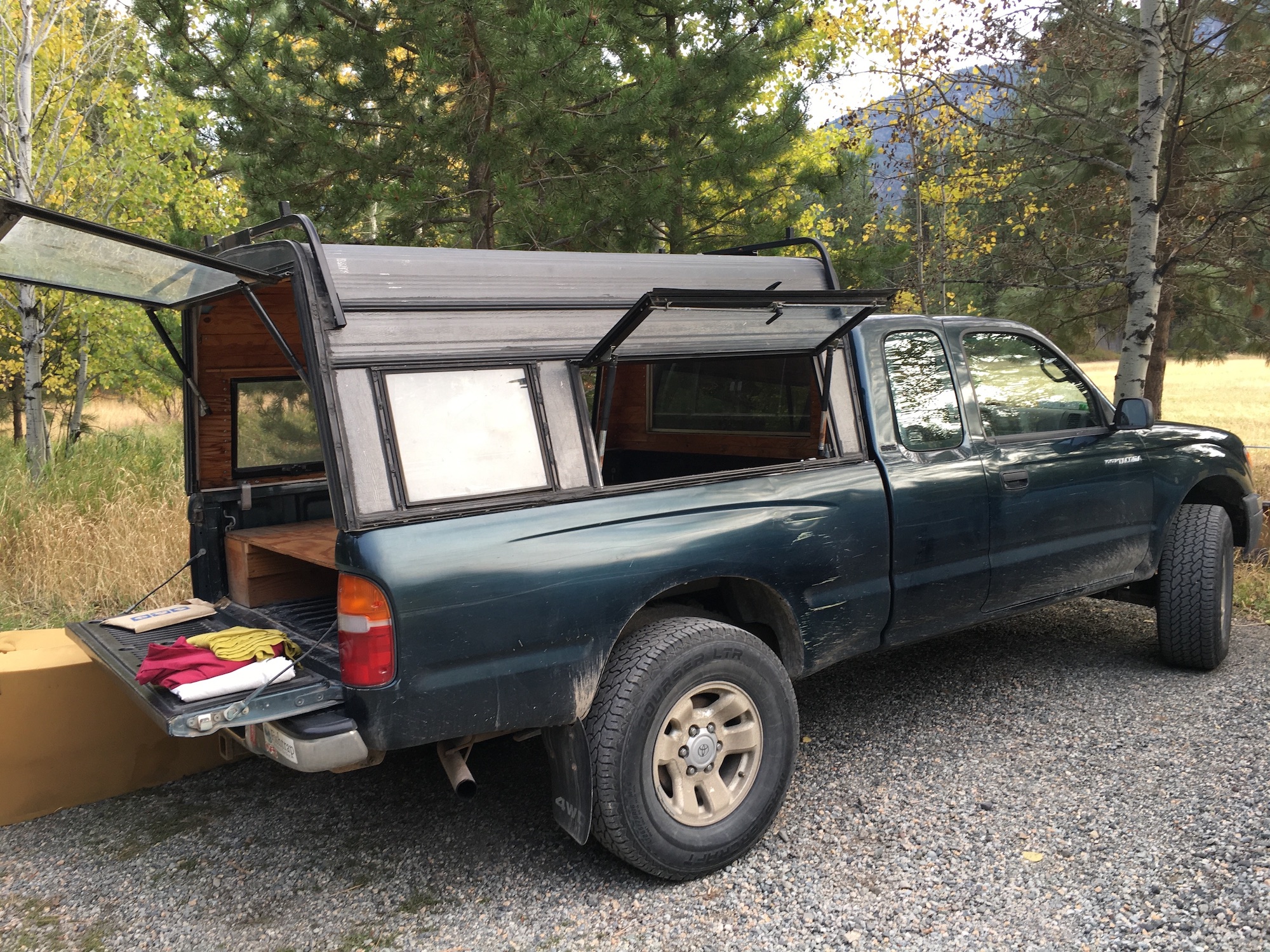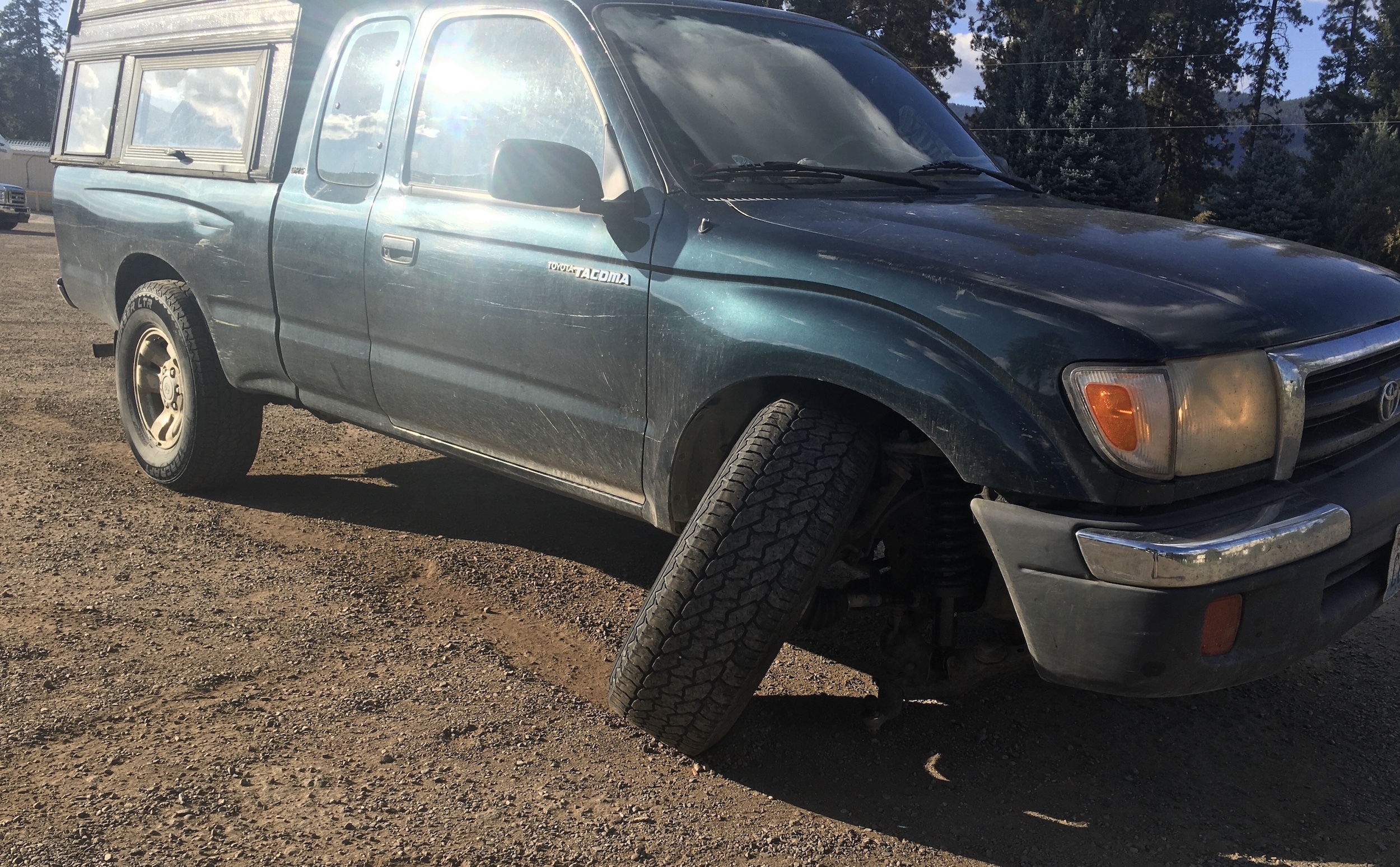
A couple of days ago, I wrote “homeward bound” with my index finger across the caked dust on the back window of my truck topper. I packed it with two weeks’ worth of clothes, with backpacking gear, with work supplies and dog food and human food. Then, I whistled my dog into the cab and drove east from my apartment in Washington towards Colorado, to see my family in the town where I grew up, and to see friends like family on the state’s Western Slope, where I chose to live as I made my way through my first decade of adulthood. I looked forward to the time alone en route. I had just put in my first-ever offer on a house after several years of feeling unmoored and placeless in the Northwest, and was preoccupied with the idea of home: My destination—where mine had been for the first 30 years of my life; and the community behind me, where I had set the still-scary intention to build one now.
The drive was beautiful—the dry sage hills along the Columbia River, the cobalt water of Lake Coeur D’Alene, the rolling Bitterroot Mountains on the Idaho-Montana border. It was also long, and several miles into Montana, my stomach growled and my eyes drooped. Billboards claiming “Best. Milkshake. Ever.” beckoned me onto the exit for St. Regis. I thought the most dangerous thing I faced there was coronavirus—Montana’s rates are surging like everyone else’s—so I snugged an n95 mask tightly over my nose and mouth, and retrieved a huckleberry shake and fries and caffeine hit as quickly as possible. Then, I drove slowly towards a nearby dog park.
I was halfway across the parking lot when the front right end of the truck dropped violently. At first, I thought I had hit a pothole and destroyed the tire. When I got out to look, I saw only flat gravel, but the entire wheel jagged crazily out of alignment, almost completely broken off. The lower ball joint had suddenly and catastrophically failed, gleaming beneath like a hipbone ripped from the socket. I stared dumbly for several minutes, imagining the wheel and the truck parting ways on Lookout Pass, 35 minutes behind me, at 60 miles an hour. Or back in Spokane, Washington, where I’d had to swerve suddenly a couple hours earlier, also at 60 miles an hour, to avoid getting sideswiped by a sedan speeding across three lanes of traffic.

Almost immediately, an older man in a black pickup drove up to see if I was OK, and to recommend a local tow truck driver. He gave me his own phone number, pointed towards his house up the street, and told me to call if I needed anything. A hotrod rolled in, and two men who said they were mechanics climbed out to see what they might do to help. Another man and woman with a backseat full of kids arrived. Soon, multiple people were calling around to see if anyone they knew nearby had a tow truck available, or might have the right equipment to repair a ball joint once they re-opened their auto shops in the morning.
When I finally made it into Missoula with the help of a tow truck driver willing to carry me and my dog along with the truck despite the pandemic, old friends responded to my Facebook post asking if anyone had a place I could crash and gave me their guest room as long as I needed it. They put beer and coffee into my hands and recommended local trails and lent me a vehicle to get around town. Another friend in Bozeman offered to lend me a Subaru for the entire trip to and from Colorado, should the truck take a long time to repair. Others offered to hook me up with their friends, in case I needed more company or a different place to stay. And still others, back in Washington, ahead in Colorado, called and texted to check in, just to make sure I was all right.
Laying in bed that night, I worried over how close I had come to grave injury or death, over what a broken ball joint and axle might cost me, over whether or not I would still get to see my family. Then I thought about the huckleberry milkshake that may have saved my life, and all of the people who showed up for me, whether I had asked them to or not.
It’s easy to fixate on the notion that home is a specific place you came from, a building, something that can belong to you. And yes, home can be all of those things. But it’s nice to be reminded that it’s also strangers who will help you, and perhaps more, it’s your dear people, near and far, who prop you up during disaster.
It’s community and love as actions, not nouns.
Maybe I’ll manage to buy that house. Maybe I won’t. Either way, perhaps I already have what I’m looking for. Homeward bound, indeed.
Beautiful! Even “The lower ball joint had suddenly and catastrophically failed, gleaming beneath like a hipbone ripped from the socket” is beautiful as prose, ugly tho’ it might have been to see. This whole piece gave me a warm feeling.
Love this so much — let us know where you land, Gilman!
If community is a verb, I feel like I need to re-community with you, as we’ve been making our way home separately together over the past few years. Drop me a line on your way back to your coastal home. sjhawley@mac.com. Still in Hood River. We don’t do ball joints, but we have good coffee, five chickens, two teenagers, a dog and a parakeet. I just missed accidentally seeing you in St. Regis by a day or two.
Ah Sarah, after reading “The Pioneer of Ruin”, I have followed you from HCN to Hakai Magazine to LWON and have discovered other great writers through you. It is not news to me that you create community around you wherever you go and leave it in your wake! I hope your truck has a successful hip replacement.
Now in my sixth decade of life (not that anything is dependent upon years lived), I have come to perceive “home” as often a bit of a transient place…perhaps better termed a transient state. Your piece was welcoming, felt more than a bit like home at times, and I reckon you found you were home in myriad ways and locations…perhaps. I consider people…at least myself…as pilgrims…and carry my home as I journey, adding to the decor as I encounter connections. Fortunately, I so far seem to have an expandable backpack in which to store most meaningful encounters. Peace to you in your home moments.